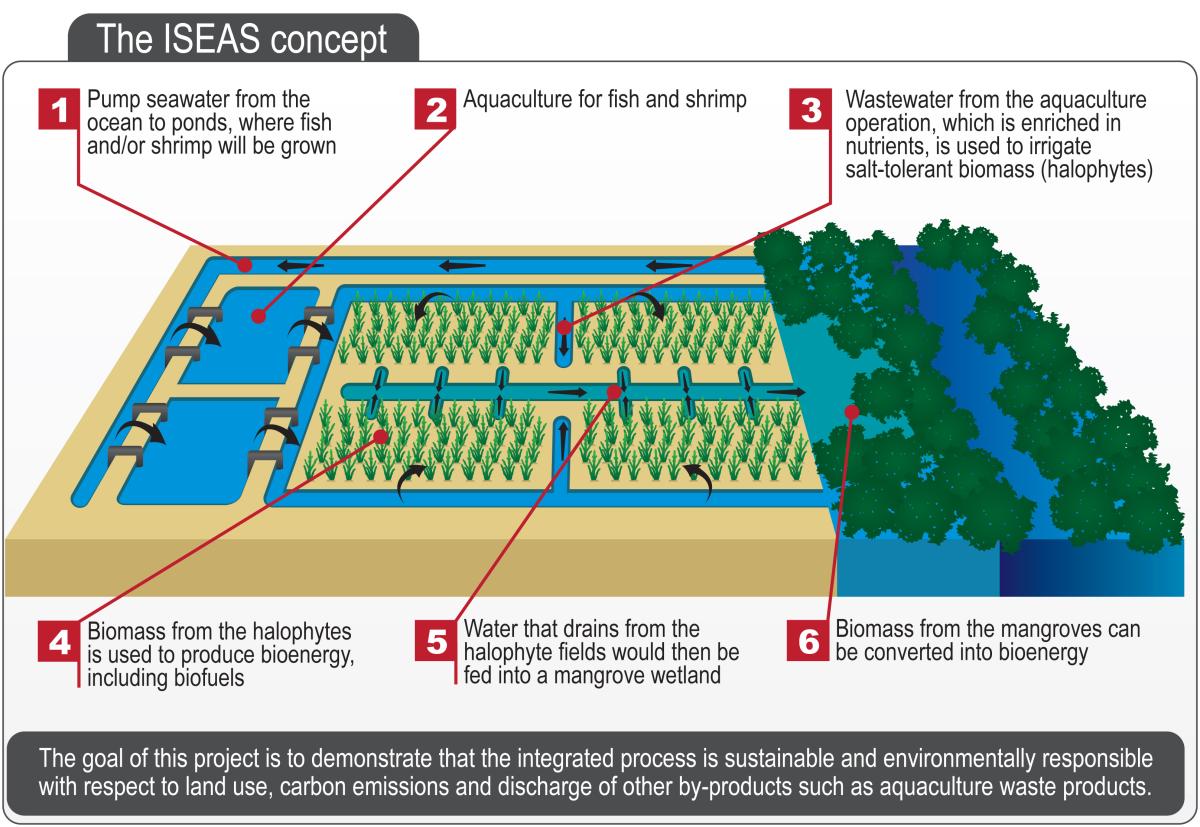Boeing, United Arab Emirates Partners Look to Harvest Biofuel from Desert Plants
Innovation will make biofuel production more efficient for aviation, vehicles
ABU DHABI, January 22, 2014 /3BL Media/ – Boeing [NYSE:BA] and research partners in the United Arab Emirates have made breakthroughs in sustainable aviation biofuel development, finding that desert plants fed by seawater will produce biofuel more efficiently than other well-known feedstocks. The Sustainable Bioenergy Research Consortium (SBRC), affiliated with the Masdar Institute of Science and Technology in Abu Dhabi, will test these findings in a project that could support biofuel crop production in arid countries, such as the U.A.E.
“Plants called halophytes show even more promise than we expected as a source of renewable fuel for jets and other vehicles,” said Dr. Alejandro Rios, Director of the SBRC. “The U.A.E. has become a leader in researching desert land and seawater to grow sustainable biofuel feedstocks, which has potential applications in other parts of the world.”
Funded by Boeing, Etihad Airways and Honeywell UOP, the SRBC is dedicated to the development and commercialization of sustainable aviation biofuel, which emits 50 to 80 percent less carbon through its lifecycle compared to fossil fuel.
“Etihad Airways is very pleased with the research results of these saltwater-tolerant plants,” said Etihad Airways President and Chief Executive Officer James Hogan. “This is real progress in developing a truly sustainable aviation biofuel from a renewable plant source, appropriate to our environment.”
Halophyte seeds contain oil suitable for biofuel production. SBRC research found that the entire shrublike plant can be turned into biofuel more effectively than many other feedstocks.
In the coming year, SBRC scientists will create a test ecosystem by planting two crops of halophytes in Abu Dhabi’s sandy soil. Waste seawater from a fish and shrimp farm will nourish halophytes that clean the water as they grow. The water will next flow into a field of mangroves before returning to the ocean. Both plants would be converted into aviation biofuel using SBRC research findings.
“This project can have a global impact, since 97 percent of the earth’s water is ocean and 20 percent of the earth’s land is desert,” Dr. Rios said.
“Boeing is committed to finding ways to reduce aviation's carbon emissions, and sustainable aviation biofuels is a key component of our strategy,” said Jeffrey Johnson, president, Boeing Middle East. “Masdar Institute’s biofuel research is showing tremendous potential, and we applaud Abu Dhabi's leadership and innovation in this critical area.”
SBRC’s research success, announced at the World Future Energy Summit, continues the momentum for a sustainable aviation biofuel industry in Abu Dhabi. On January 18, Etihad Airways conducted a demonstration flight with a 777-300ER (Extended Range) powered in part with biofuel refined in U.A.E. On January 19, Boeing, Etihad Airways, Masdar Institute and others launched BIOjet Abu Dhabi: Flight Path to Sustainability, an initiative to advance biofuel research, feedstock production and refining capability.
These activities are aligned with the Abu Dhabi Economic Vision 2030, which seeks to develop sustainable energy sources to diversify the U.A.E. economy and increase workforce opportunities for Emiratis.
Boeing collaborates with airlines, research institutions, governments and other stakeholders to develop sustainable biofuel supply chains around the world, including in the United States, China, Brazil, Australia and Europe. For more information, visit http://www.boeing.com/environment/
# # #
Contacts:
Jessica Kowal
Boeing Commercial Airplanes Environment Communications
+1-206-660-6849



